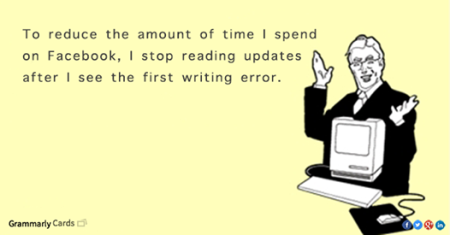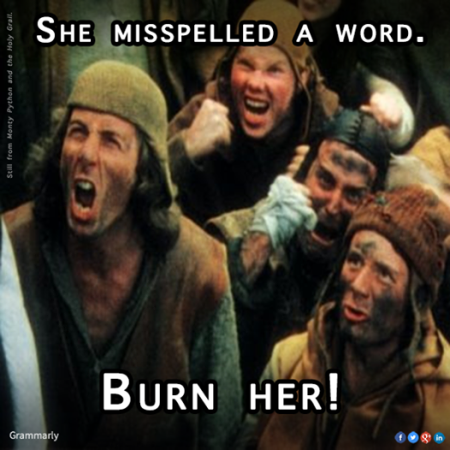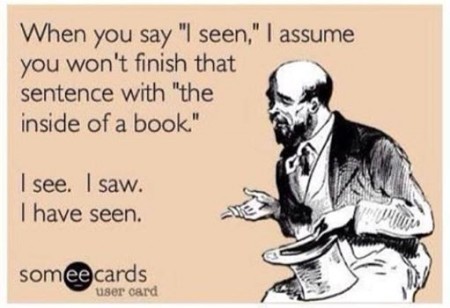It is no secret that I love words. I’m fascinated by language and the history of words, so it should come as no surprise that I’m particular about grammar, punctuation and spelling. And social media tells me I’m not the only one. Seems like hardly a day goes by that I don’t see somebody posting something about how it sends them into seizures when they see somebody using the wrong form of your/you’re or their/there/they’re. I get this. I really do. I mentally edit so many status updates, blog posts, or even church bulletins. It’s a habit I can’t turn off and don’t really want to. It feels like a fun mental exercise and I know precision in language is important.
But I also think it becomes an exercise in privilege.
How did I learn what form of “your” to use? I had a great education. I lived in a good neighborhood, attended good schools, and was able to afford to go to college. Beyond that, I had parents who loved to read, proofread my homework, and talked to me about language. They also gave me a good breakfast every morning before school and provided me with a safe and loving home so that school was all I had to worry about in my average day. Over the years my mom has done some public speaking at church conferences and even when I was young she would practice her speeches on me and trained me to have a critical ear when it came to content and structure. All that to say, I am not a writer by accident. I do not just love grammar because it came naturally to me. While I think some of us are born with a love of language, it’s the training we receive that gives us the tools and skills to be proficient.
And yet, we can get pretty smug about our superior abilities in this area as though they are totally attributed to our natural genius. Or we imply that someone else’s lack of understanding in this area has to do with their own laziness. But what if that isn’t the case at all?
Sometimes I try to imagine what it would be like to not know the rules of grammar some of us have had so instilled in us. What if I needed to express something in writing, but knew I was likely to make a mistake? It reminds me of how I felt as a girl from the midwest living in Tennessee. Every time I opened my mouth it marked me as somebody who wasn’t local. People made assumptions about me, my values and my upbringing based on something that was entirely out of my control. And in some ways their judgements were correct, but at times it made me feel like the content of what I was saying was getting lost in the accent (or lack thereof) of what I was saying.
If you have the responsibility to teach someone about proper use of grammar, do it. It will open doors for them and keep their content the focus when they’re talking to others. But for the rest of us, I think it’s important that we take a step back from our tendencies to be judgmental of the grammar or spelling of others. We would do well to remind ourselves that when we think we’re pointing out someone’s grammar error, we may actually be pointing out the poverty they came from, the rough childhood they experienced or the learning disability they’ve struggled with for years. There may be an appropriate time and place for that conversation, but may our desire to be right and know the rules never stifle the legitimate speech and experience of someone who is struggling to express themselves.




2 Comments
Leave a reply →